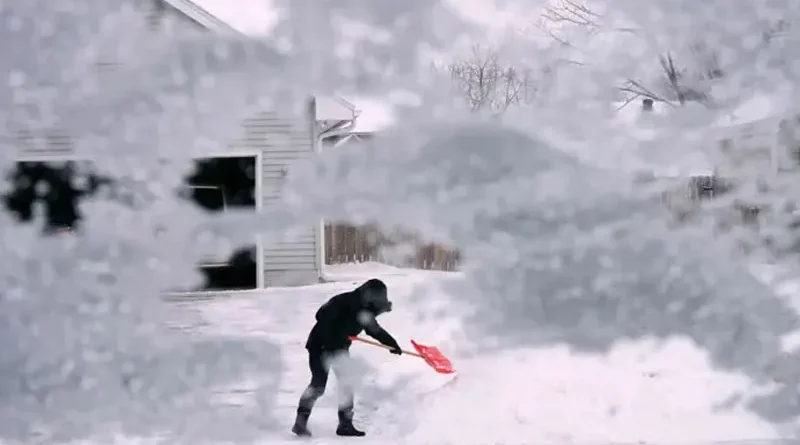Christmas days marked by storms, travel disruptions in US
Wintry weather wreaked havoc across several regions in the United States, particularly in the Great Plains, with icy conditions and blizzard warnings affecting swathes of the population.
The National Weather Service issued alerts impacting approximately 720,000 people, spanning from northwestern Kansas and Colorado to extensive areas of South Dakota. While some rejoiced in the picturesque snowfall, others grappled with hazardous situations caused by ice and sleet in different parts of the region.
North Platte, Nebraska, woke up to around 2 inches of snow on Christmas morning, marking its first white Christmas since 2017. However, the joyous occasion was marred by storm-related issues, leading to problematic situations highlighted by the Nebraska State Patrol. Tractor-trailers slid partially off roads, and the storm led to blockages on Interstate 80 due to blowing snow over icy surfaces.
Authorities advised residents to avoid unnecessary travel, stressing the severity of the conditions. Central and north South Dakota braced for snow and blizzard conditions, while the northeastern part faced freezing rain and ice, prompting warnings for drivers to carry winter survival kits.
Taking to social media, Governor South Dakota Kristi Noem highlighted weather awareness and urged precautionary measures.
While air travel experienced disruptions, FlightAware reported 137 cancellations for domestic and international flights on Monday, with Southwest Airlines bearing the brunt of delays and cancellations due to residual effects from dense fog in Chicago.
Despite the challenges, a significant number of holiday travelers reached their destinations, revealed by the Transportation Security Administration’s screening of over 2.6 million individuals on Thursday.
As some areas experienced unexpectedly warm temperatures for the wintry season, parts of the Pacific Northwest, notably Pendleton, Oregon, were cautioned about impending freezing rain, posing potential hazards for the region through Tuesday morning.

